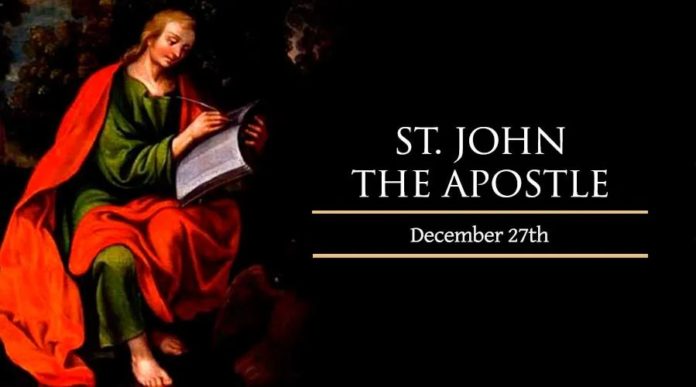John the Apostle, better known in the Gospels as “the disciple whom Jesus loved,” was born in Gilead, the son of Zebedee and Salome. John was the brother of the apostle James. It is believed that both were originally disciples of John the Baptist. They were known as the ‘Sons of Thunder.
John was the youngest member of the apostolic community. John, who lived his life as a bachelor, was the object of Christ’s special love. John was fortunate enough to be with Jesus when he was transformed when he raised Jairus’ daughter, and when he shed blood in Gethsemane. Moreover, Jesus entrusted his mother to Gogolta under the care of this disciple who was leaning on the bosom of Christ at the Last Supper.
John was the only disciple who followed Christ when all the apostles fled in terror during the tribulation. It was in the presence of this disciple that the body of Christ was taken down from the cross, laid on the lap of God’s birth, and then buried.
The fourth gospel of the book, the three epistles and the revelation belongs to this dear disciple. In the Gospels, the apostle is often referred to as “the disciple whom Jesus loved”. He repeats this adjective many times. He did this not to give importance to himself over others, but to show his sincere love and gratitude to the Divine Lord. After the resurrection of Jesus, when Peter healed the lame man in the temple courtyard, John was there too. They were imprisoned together by the Jews.
The apostle had not been seen in the mission for a long time because he was so devoted to caring for Mary, who was given to him as his mother on Mount Golgotha. In the meantime, he went to various places to spread Christianity. It is believed that Parthia has been the mainstay of his missionary work. Until the Ascension of the Mother of God, the general opinion is that John lived in Jerusalem.
The apostle then proceeded to Asia Minor, where he continued his mission, based in Ephesus. Here the saint performed many miracles, converted many and established many temples. The apostle was arrested during a Domitian religious persecution in 95 AD and was brutally flogged and tried to be executed by boiling in boiling oil. But when he saw that he had not been harmed, he did not dare to torture the apostle again and deported him to the island of Patmos. It was there that the apostle wrote the book ‘Revelations’. The apostle died in the year 100, sixty-six years after the death of Christ.



